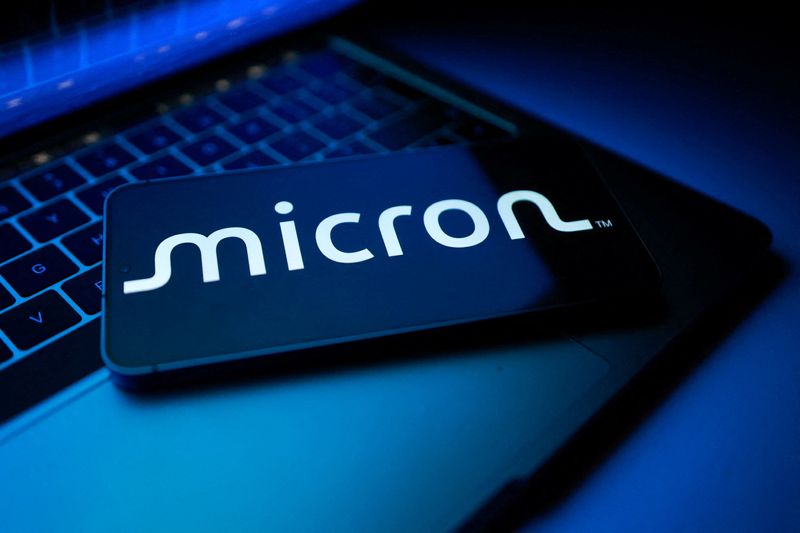By Hyunjoo Jin and Brenda Goh
SEOUL/SHANGHAI (Reuters) -Micron plans to stop supplying server chips to data centres in China after the business failed to recover from a 2023 government ban on its products in critical Chinese infrastructure, two people briefed on the decision said.
Micron was the first U.S. chipmaker to be targeted by Beijing – a move that was seen as retaliatory for a series of curbs by Washington aimed at impeding tech progress by China’s semiconductor industry.
Since then, both Nvidia and Intel chips have similarly fielded accusations from Chinese authorities and an industry group of posing security risks, though there has not been any regulatory action.
LENOVO TO REMAIN A CUSTOMER
Micron will continue to sell to two Chinese customers that have significant data centre operations outside China, one of which is laptop maker Lenovo, the people said.
The U.S. company, which made $3.4 billion or 12% of its total revenue from mainland China in its last business year, will also continue to sell chips to auto and mobile phone sector customers in the world’s second-largest economy, one person said.
Asked about the exit from its China data centre business, Micron said in a statement to Reuters that the division had been impacted by the ban, and it abides by applicable regulations where it does business.
Lenovo did not immediately respond to a request for comment.
U.S.-Sino trade tensions and tech rivalry have only escalated since 2018, when U.S. President Donald Trump began imposing tariffs on Chinese goods during his first term. That same year, Washington ramped up accusations against Chinese tech giant Huawei, accusing it of representing a national security risk, imposing sanctions a year later.
Huawei has denied those charges. Nvidia and Intel have also denied charges that their products pose risks to Chinese national security. Micron also said in 2023, before the conclusion of China’s probe, that it stood by the security of its products.
Currently, the U.S. has sanctioned hundreds of Chinese entities. China, which is more reliant on imported tech, has taken far fewer regulatory actions.
LOSING OUT ON CHINA’S AI BOOM
The ban on Micron products in critical infrastructure by China – the world’s second-largest market for server memory – has meant the company has missed out on the country’s data centre expansion boom.
That’s benefited rivals Samsung Electronics and SK Hynix, as well as Chinese companies YMTC and CXMT, which have been aggressively expanding with the support of the Chinese government.









